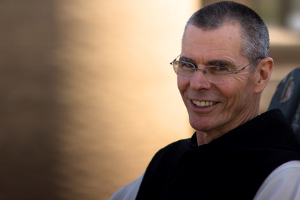Eleventh Sunday in Ordinary Time
[Scripture Readings: Ez 17:22-24; 2 Cor 5:6-10; Mk 4:26-34]

What could be simpler than a seed? At least for a layman, a Sunday gardener, a seed is utterly simple. It is still mysterious, though. Simple yet mysterious.
Maybe the yet should go: Simple, and so mysterious; mysterious, and so simple.
Even the man in the parable was stumped: he did not know how, meaning he puzzled over the seed now and then, how does it work; but not to the extent that he lost sleep over it. Its simplicity and its mystery did not cloud over its reliability. He could sleep and rise day and night, what people do, because he believed the seed would do what seeds do. He did not know how, but experience and memory of the past were grounds for faith, and so it is for us. We do not understand, we do not know how, but we believe, and so we sleep and we rise, doing freely what people do.
A small seed. “I bring low the high, and lift high the lowly,” says the Lord in our first reading. Here is the mystery of the Kingdom. It is what Mary said, with the seed of the Word new in the soil of her womb: “He has thrown down the rulers from their thrones, And lifted up the lowly.” Oops, did she really say that?
Yes, she did, and the simplicity and truth of those words creates terribly complicated situations. For the rulers are precisely high and mighty and have all the resources at hand to keep the lowly in their places, or try to, and they do try, and it looks like they even succeed: mass graves, crowded jails, refugee camps, ghettos, rampant poverty and people on the run.
Our readings, in fact, are about the displaced: the transplanted cedar tree, the seed in the vast earth, apparently abandoned by the man who just sleeps and rises, and we Christians, says Saint Paul, who while at home in the body are exiled from the Lord. As early as the second century a venerable Christian text elaborated Paul's idea: Christians live in their own countries like foreigners; they take part in everything like citizens, and suffer everything like strangers. For them, ever foreign land is home, and every home is a foreign land (Letter to Diognetus).
Last week all the leaders of the Orthodox and Latin Christians of Syria met together in Damascus. In a message to the Christians of the Middle East the patriarchs say,
-
“In the midst of this oppressive crisis, do not forget that the Lord has promised: Do not fear, little flock, for it has pleased your Father to give you the kingdom. Yes dear children, [while] people are being led like sheep to the slaughter, be strong and do not despair. Be strong and powerful with the grace that supplies every weakness. Follow the way of the Gospel. Be confident in God who has conquered evil and death because he will not depart from you. He is your companion on the roads of exile, departure and emigration. He is your support in poverty, hunger and need, he is your consolation when the days become unjust, when all help vanishes, and when doubt that God cares for you stirs among you. He saves you in trouble, he is the light that guides you in the darkness of this world, he is your resurrection from despair and death, he is your victory over evil, its tricks and tools.”
Neither do these pastors spare hard words to the powerful, especially the countries of the west, including the US, who are interfering and manipulating the situation to benefit their own extraneous interests. They plead for the return of the abducted, of the displaced, and for the right of the Syrian people to determine their own destiny free of all outside interference.
The Kingdom of God Jesus preached is the real home of all God's creatures. All, even the birds of the air, are exiles, pilgrims on the earth, until we rest secure and at peace in the embrace of the Kingdom. As Pope Francis will show in his encyclical to be issued this week, the embrace of the Kingdom is the mutual embrace of all creatures of one another, in peace and in reconciliation. An embrace is utterly simple; to live without fear and without the need to judge or keep your distance from the stranger and the strange is to live in wonderful and simple freedom. The stranger is by definition a mystery. In this sense, God is the ultimate stranger, and we, our true selves, come next in strangeness. To embrace this mystery, and the mystery of each, is to be living already in the simplicity of the Kingdom of God.
